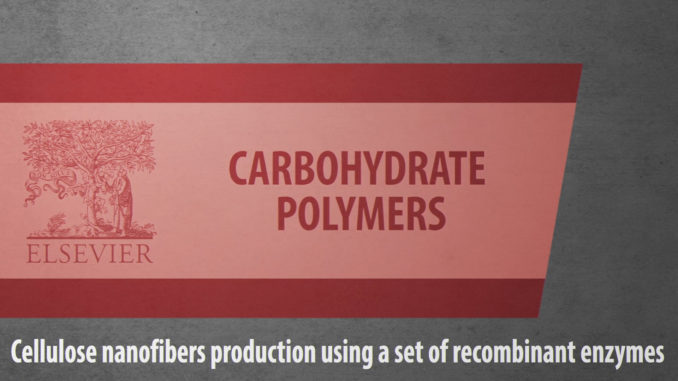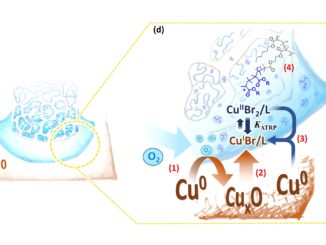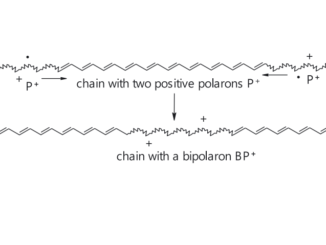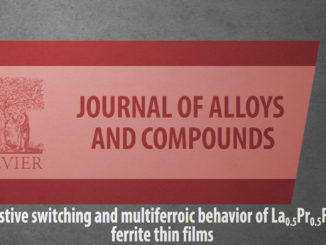
Cellulose nanofibers production using a set of recombinant enzymes
Abstract: Cellulose nanofibers (CNF) are renewable and biodegradable nanomaterials with attractive barrier, mechanical and surface properties. In this work, three different recombinant enzymes: an endoglucanase, a xylanase and a lytic polysaccharide monooxygenase, were combined to enhance cellulose fibrillation and to produce CNF from sugarcane bagasse (SCB). Prior to the enzymatic catalysis, SCB was chemically pretreated by sodium chlorite and KOH, while defibrillation was accomplished via sonication. We obtained much longer (μm scale length) and more thermostable (resisting up to 260 °C) CNFs as compared to the CNFs prepared by TEMPO-mediated oxidation. Our results showed that a cooperative action of the set of hydrolytic and oxidative enzymes can be used as a “green” treatment prior to the sonication step to produce nanofibrillated cellulose with advanced properties.
Author(s): Rossi, B.R.; Pellegrini, V.O.A.; Cortez, A.A.; Chiromito, E.M.S.; Carvalho, A.J.F.; Pinto, L.O.; Rezende, C.A.; Mastelaro, V.R.; Polikarpov, I.
Carbohydrate Polymers
Published: 15 March 2021, Volume 256, 117510
DOI: https://doi.org/10.1016/j.carbpol.2020.117510
CDMF
The CDMF, hosted at the Federal University of São Carlos (UFSCar), is one of the Research, Innovation and Dissemination Centers (RIDC) supported by the São Paulo State Research Support Foundation (Fapesp), and also receives investment from the National Council Scientific and Technological Development (CNPq), from the National Institute of Science and Technology of Materials in Nanotechnology (INCTMN).




